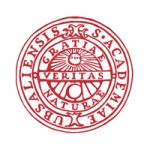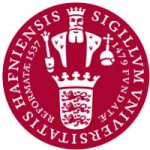项目介绍
Are you interested in developing new image analysis and machine learning methods for improved cancer understanding, diagnostics, and treatment targets? Would you like to work together with competent and friendly colleagues in an international environment? Are you seeking an employer that offers safe and favorable working conditions? We welcome you to apply for a DDLS PhD position in Data-driven cell and molecular biology at the Department of Information Technology, Uppsala University.
The Department of Information Technology holds a leading position in both research and education at all levels. We are Uppsala University’s third largest department, with 350 employees, including 120 teachers and 120 PhD students. Approximately 5,000 undergraduate students take one or more courses at the department each year. You can find more information about us on the Department of Information Technology website.
The project will be led by Ida-Maria Sintorn, Professor in digital image processing, at the Department of Information Technology and conducted alongside researchers developing computational methods with a particular focus on deep learning and image analysis. The project relies on collaboration with Carina Strell at the Department of Immunology, Genetics and Pathology (IGP), and Ingela Lanekoff, Department of Chemistry, at Uppsala University.
The PhD position is within the Data-driven life science (DDLS) Research School. DDLS uses data, computational methods and artificial intelligence to study biological systems and processes at all levels, from molecular structures and cellular processes to human health and global ecosystems. The SciLifeLab and Wallenberg National Program for Data-Driven Life Science (DDLS) aims to recruit and train the next generation of data-driven life scientists and to create globally leading computational and data science capabilities in Sweden. The program is funded with a total of 3.3 billion SEK (about 330 MUSD) over 12 years from the Knut and Alice Wallenberg (KAW) Foundation.
In 2025 the DDLS Research School will be expanded with the recruitment of 19 academic and 7 industrial PhD students. During the course of the DDLS program more than 260 PhD students and 200 postdocs will be part of the Research School. The DDLS program has four strategic research areas: cell and molecular biology, evolution and biodiversity, precision medicine and diagnostics, epidemiology and biology of infection. For more information, please see https://www.scilifelab.se/data-driven/ddls-research-school/
The future of life science is data-driven. Will you be part of that change? Then join us in this unique program!
Project description
Breast cancer develops from atypical hyperplasia (ADH), through ductal carcinoma in situ (DCIS) to invasive carcinoma (IC) and finally distant metastasis. However, only a few DCIS lesions progress to invasive breast cancer. Since underlying evolutionary processes are largely unknown, the biological and clinical prediction of progression remains difficult, leading to over- and undertreatment of women with particularly early breast cancer.
Over the past decade, spatial tissue analysis techniques have been developed that enable studying gene expression patterns, in depth cellular phenotypes, as well as metabolites directly in the tissue context as images. The overall purpose of this data driven cell and molecular biology project is to combine image processing and AI to develop a framework for large scale registration, and interactive visualization and analysis of 4 different types of in situ image informatics. This, to serve the biological goal of mapping out the breast cancer tumor microenvironment, understanding the regulatory signaling network, and identifying early stage progression markers and treatment targets.
Data driven cell and molecular biology covers research that fundamentally transforms our knowledge about how cells function by peering into their molecular components in time and space, from single molecules to native tissue environments.
Duties
The successful candidate will devote most of their time to research level education. Other department duties of at most 20%, including teaching and administrative work, may also be included in the employment. In this case the position will be extended to allow four years of full-time graduate studies.
Requirements
Entry requirements for doctoral education are regulated in the Higher Education Ordinance. To meet the general entry requirements for doctoral studies, you must:
- Hold a Master’s degree in computer science, image analysis and machine learning, engineering, data sciences, applied mathematics, or another related field; or
- Have completed at least 240 credits in higher education, with at least 60 credits at Master’s level including an independent project worth at least 15 credits; or
- Have acquired substantially equivalent knowledge in some other way.
The University may permit an exemption from the general entry requirements for an individual applicant, if there are special grounds (Chapter 7, § 39 of the Higher Education Ordinance). For special entry requirements, please see the subject’s general study plan.
The specific requirements are met by having passed exams in areas relevant to the subjects of image analysis and machine learning with a minimum of 90 higher education credits. Relevant courses include, for example, image processing, computer vision, machine learning, deep learning and neural networks, as well as courses in python, GPU programming, mathematical modeling and statistics, or equivalent.
We are looking for candidates with:
- A solid academic background with thorough computational and analytical understanding;
- Proficiency in programming in Python and deep learning frameworks such as PyTorch and TensorFlow;
- Excellent communication skills in oral and written English;
- Creativity, thoroughness, and a structured approach to problem-solving;
- Good collaborative skills, drive, and independence.
Additional qualifications
Meriting are:
- Interest in biomedical research and experience in application of image analysis in biomedicine;
- Experience of programming in Matlab, software version control with Git, typesetting with LaTeX;
- Experience with explainable and interpretable AI (XAI);
- Experience in data visualization, and interactive user-in-the-loop concepts;
- Experience in computational cell biology, cell and molecular biology, and genetics;
- Experience in imaging instrumentation and microscopy.
Rules governing PhD students are set out in the Higher Education Ordinance chapter 5, §§ 1-7 and in Uppsala University’s rules and guidelines.
Application
The application should consist of:
- A Curriculum Vitae (CV);
- A copy of a degree/diploma, and transcript of records with grades (translated into English or Swedish);
- Master’s thesis (or a draft thereof) and/or some other self-produced technical or scientific text, scientific publications, and other relevant documents, in electronic form;
- Contact details (names, emails, and telephone numbers) of minimum two references, also specifying the context, duration, and nature of the relationship with the candidate. Reference letters may be provided as supporting document but are not required at the time of the application.
- A personal letter (max 1 page) which includes
- Described motivation for the application for this position;
- The earliest possible starting date of employment;
- Up to three main scientific achievements.
About the employment
The employment is a temporary position according to the Higher Education Ordinance chapter 5 § 7. Scope of employment 100 %.Starting date September 1, 2025 or as agreed. Placement: Uppsala.
For further information about the position, please contact: Prof. Ida-Maria Sintorn (email: ida.sintorn@it.uu.se).
Please submit your application by May 12, 2025, UFV-PA 2025/1197.
Are you considering moving to Sweden to work at Uppsala University? Find out more about what it´s like to work and live in Sweden.
Uppsala University is a broad research university with a strong international position. The ultimate goal is to conduct education and research of the highest quality and relevance to make a difference in society. Our most important asset is all of our 7,600 employees and 53,000 students who, with curiosity and commitment, make Uppsala University one of Sweden’s most exciting workplaces.
Read more about our benefits and what it is like to work at Uppsala University
https://uu.se/om-uu/jobba-hos-oss/
联系方式
电话: +46 18 471 00 00相关项目推荐
KD博士实时收录全球顶尖院校的博士项目,总有一个项目等着你!





